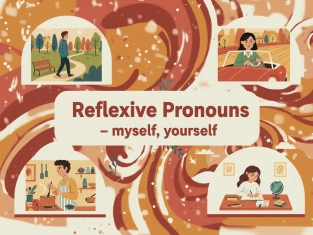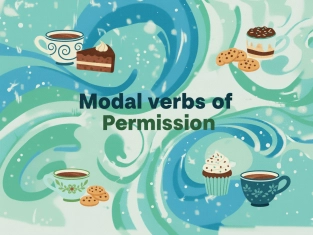Phrasal Verbs with Get
Table of Contents
Exercises
Explanation
1. What Does Get Mean?
The verb get has several common meanings on its own. Here are the main ones:
1. Obtain / get something you need
-
I need to get some documents from the office.
-
She went to get a bottle of water.
2. Take / use a type of transport
-
I get the bus to school every morning.
-
We can get a taxi if it starts raining.
3. Receive
-
Did you get my message?
-
He got a gift card for his birthday.
4. Buy
-
Let’s get some vegetables for dinner.
-
I’m going to get a new notebook today.
5. Become
-
It’s getting dark outside.
-
You can get stronger if you exercise more.
6. Arrive
-
What time did you get home last night?
-
Call me when you get there.
7. Understand
-
I didn’t get what she meant.
-
Now I get the rules of the game.
8. Cause something to happen
-
You should get your laptop repaired.
-
We want to get the house painted this month.
Get is common in speaking but sounds informal in writing. In formal writing, it’s better to use more precise verbs (receive, buy, obtain, etc.).
2. Phrasal Verbs with Get
Phrasal verbs combine a verb with a preposition or adverb. Get forms many useful phrasal verbs that appear in everyday English.
Here are the most important ones:
get on – enter a bus/train/plane/bike
-
The train is here—let’s get on.
get off – leave a bus/train/plane/bike
-
We got off at the wrong station.
get in – enter a car or small space
-
She got in the car quickly because it was raining.
get out – leave a car or small space
-
You can get out now; we’ve arrived.
get up – leave your bed in the morning
-
I usually get up at 6:45.
get back – return
-
We should get back before it gets dark.
get over – recover from illness or difficulty
-
He finally got over the flu.
get on / get along with – have a good relationship
-
Do you get along with your neighbours?
get across – communicate an idea clearly
-
She tried to get across her point, but no one listened.
get by – manage with what you have
-
My Italian isn’t perfect, but I can get by in shops.
get through – reach someone by phone
-
I can’t get through to the office; the line is busy.
get away with – do something wrong without being punished
-
He got away with cheating on the test.
3. Passive Form with Get
Sometimes English uses get + past participle to make an informal passive.
Examples
-
His bike got stolen yesterday.
-
Their window got broken during the storm.
We usually use this form for unexpected or negative events.
We do not use get in formal or historical descriptions:
-
Correct: The bridge was built in 1990.
-
Incorrect: Not correct: The bridge got built in 1990.
4. Have got – expressing possession
Have got is often used in spoken English to show possession.
Examples
-
She’s got a lovely garden.
-
Have you got any questions?
-
I’ve got a sore throat.
In formal writing, use have instead:
-
We have all the information you requested.
The verb get is extremely common and very flexible. Learning its different meanings and phrasal verbs will help you understand native speakers and communicate more naturally.

